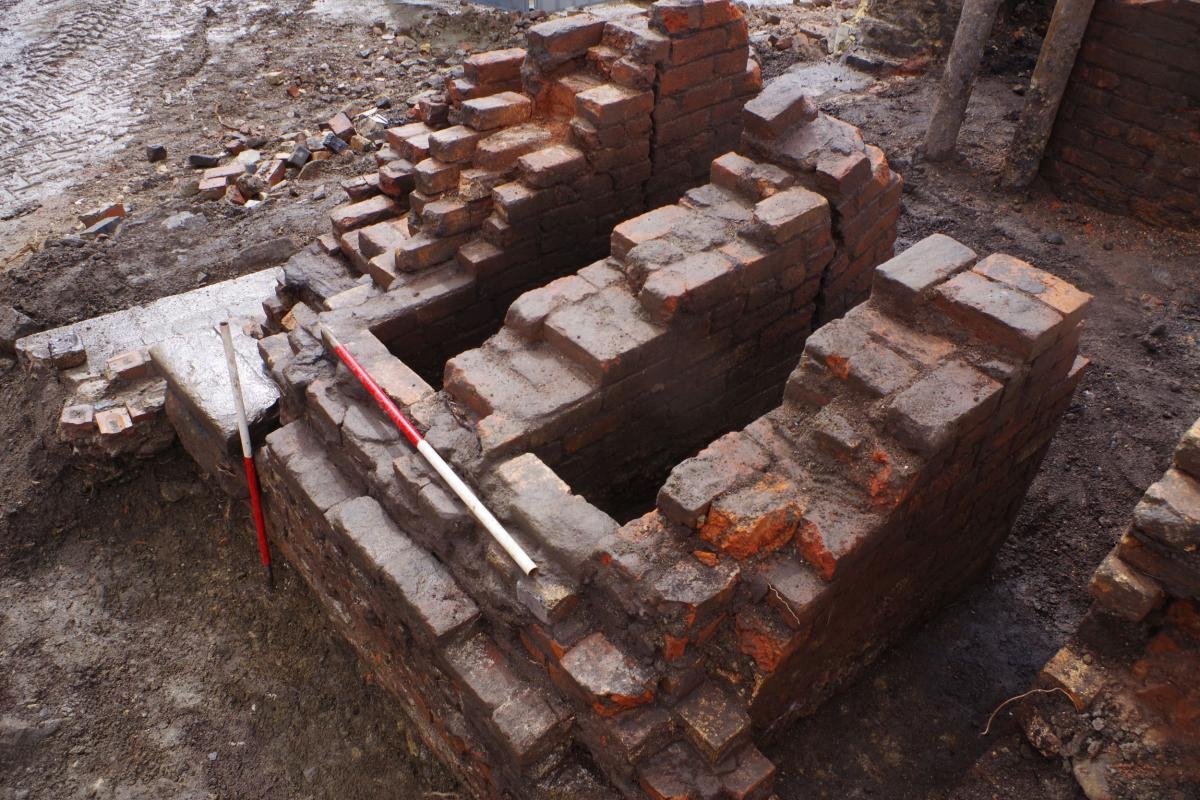A team of archaeologists from Wessex Archaeology have uncovered the industrial heritage of Sheffield during excavations at Sheffield Castle.
Sheffield Castle was constructed following the Norman Conquest of England (1066) at the confluence of the River Sheaf and the River Don.
Throughout April and May of 2024, Wessex Archaeology is conducting a series of excavations to uncover and preserve the foundations of the circular towers of the castle’s gatehouse, and explore the destruction deposits from the razing of the original motte and bailey castle by John D’Eyvill in the 13th century.
The team will also be investigating areas never before excavated, finally reaching the remains of the 11th to 17th-century castle where Mary Queen of Scots was imprisoned.
Following the removal of the modern concrete foundations and backfill deposits, excavations have already uncovered traces of structures from the 19th century.
The team found remnants of a vaulted ceiling, which upon further inspection has been revealed to be a crucible furnace, a type of foundry furnace used for melting and casting metals such as steel, in addition to ‘rake out’ pits below the furnace.
A press statement by Wessex Archaeology, “This cellar would have been a hot, unpleasant place when the crucible furnaces above were working. Reaching temperatures of 1200 degrees centigrade, the firing process was hot and efficient, but it also produced lots of ash which needed to be cleared. The ash would fall into the ‘rake out’ pits below, where a worker, perhaps a young boy, had the back-breaking job of removing it.”
Throughout April and May 2024, the Sheffield community is invited to experience and discover the site’s archaeology firsthand, through open days and opportunities to participate in the excavation for a day. Attendance is FREE with booking required. For more information and to book, visit www.wessexarch.co.uk/events
Header Image Credit : Wessex Archaeology
Sources : Wessex Archaeology





